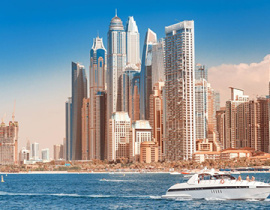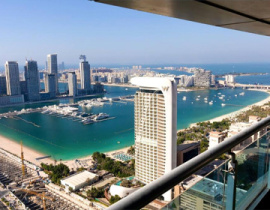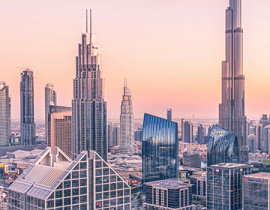- Home
- Blog
- Buying Guide
- Freehold vs Leasehold: The Key to Living and Investing in Dubai
Freehold vs Leasehold: The Key to Living and Investing in Dubai
Dubai’s property market offers opportunities that attract investors and residents from around the world, but navigating it successfully requires understanding key differences in ownership structures. Choosing the right property is not just about location or price; it affects your long-term control, financial planning, and even residency status. With the right guidance, you can make informed choices that align with both your lifestyle and financial objectives, ensuring your time and money in Dubai’s dynamic market work to your advantage.
Definition and Explanation of Freehold and Leasehold Ownership in Dubai
 In Dubai, freehold and leasehold ownership describe two very different ways of holding property, and understanding both helps you make better decisions as a buyer.
In Dubai, freehold and leasehold ownership describe two very different ways of holding property, and understanding both helps you make better decisions as a buyer.
What is freehold property in Dubai? Freehold ownership, also known as Melkiah, grants you complete and permanent rights over both the property and the land it stands on. You can live in it, rent it out, sell it, or transfer it freely because the title is registered under your name with the Dubai Land Department.
What is leasehold property in Dubai? Leasehold ownership, known as Usufruct or Ijarah, gives you the right to use and enjoy a property for a fixed time, usually between 30 and 99 years, but not to own the land. The land remains under the control of the freeholder, and you must follow their terms for major changes or renovations.
Legal Basis and Rights Under Each Ownership Type in Dubai
The legal foundation for property ownership in Dubai comes from Law No. 7 of 2006, which formally distinguished between freehold and leasehold rights. As a freeholder, you gain full legal authority over the property, including the right to sell, mortgage, or transfer it without restriction. Leaseholders, on the other hand, hold only the right to occupy or benefit from the property during the lease term, so their rights are limited by the conditions set in their lease contract.
UAE and GCC nationals can own property anywhere across Dubai, while expatriates can only own freehold property within specific areas approved by the Ruler. Outside those areas, you may still lease property under a long-term agreement, but you do not gain the same permanent control.
Dubai’s Government Regulations and Zones Where Each Applies
Dubai’s government introduced both ownership systems to attract global investors while maintaining control over land distribution. The emirate created designated freehold zones such as Palm Jumeirah, Downtown Dubai, Jumeirah Lakes Towers, and Dubai Marina, which are supported by municipal infrastructure, transport access, international schools, advanced utilities, and urban planning standards. These areas allow expatriates to buy property in the UAE with full ownership rights, creating vibrant investment hubs that strengthen Dubai’s global reputation.
In contrast, non-freehold zones mostly follow the leasehold model, where the land stays under government or developer ownership, and foreign buyers only gain long-term usage rights. This zoning policy ensures sustainable development, protects national land interests, and keeps property values stable across both local and international markets.
Freehold Property vs Leasehold in Dubai: Pros and Cons
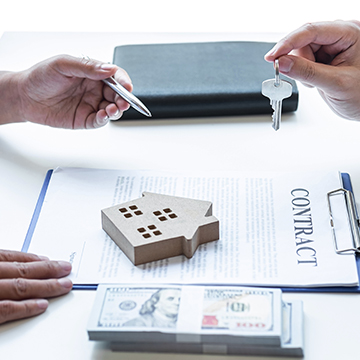 Freehold Ownership
Freehold Ownership
- Full and indefinite ownership of both property and land.
- Complete freedom to sell, lease, or modify the property.
- High resale potential and long-term value appreciation.
- Eligible for long-term residency programs, such as the UAE Golden Visa.
- Requires substantial upfront investment and often significant financing.
- Expatriates must register a DIFC Will to ensure proper inheritance under non-Sharia law.
- Best suited for long-term residents, high-net-worth investors, or those planning generational wealth transfer.
Leasehold Ownership
- Right to use the property for a fixed term, typically up to 99 years.
- Lower entry cost makes it accessible for first-time or budget-conscious buyers.
- Often located in desirable areas with good rental yields relative to investment.
- Ownership expires at the end of the lease and reverts to the freeholder.
- Limited control over major renovations or structural changes.
- Less favorable mortgage and financing terms; potential capital gains are smaller.
- Best suited for short-term investors, tenants seeking affordability, or buyers focusing on rental income.
Examples of Areas in Dubai
- Freehold Zones: Palm Jumeirah, Dubai Marina, Downtown Dubai, Business Bay, Jumeirah Village Circle. Freehold property areas in Dubai offer luxury developments, long-term value stability, and eligibility for property-linked visas.
- Leasehold Zones: Dubai Silicon Oasis, International City, and Discovery Gardens. These locations are more affordable, provide strong rental demand, and suit short-term investors or working professionals.
Which Is Right for You? Choosing the Best Option in Dubai
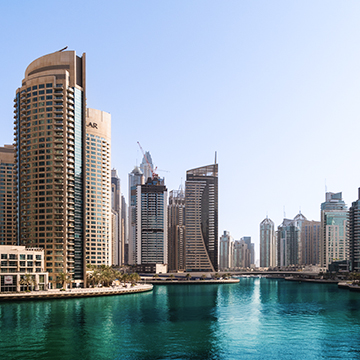 Choosing between freehold and leasehold property to buy in the United Arab Emirates depends on your goals, budget, and plans for the property. Freehold properties in Dubai suit long-term residents or investors seeking stability, full control, and potential inheritance, because they allow permanent ownership and flexibility to modify or sell. Leasehold properties in Dubai work well for short-term investors or those with a limited budget, because they offer access to desirable locations and lower entry costs, even though ownership ends after a set period.
Choosing between freehold and leasehold property to buy in the United Arab Emirates depends on your goals, budget, and plans for the property. Freehold properties in Dubai suit long-term residents or investors seeking stability, full control, and potential inheritance, because they allow permanent ownership and flexibility to modify or sell. Leasehold properties in Dubai work well for short-term investors or those with a limited budget, because they offer access to desirable locations and lower entry costs, even though ownership ends after a set period.
Consider how long you plan to stay, whether the property is for living or renting, and how much capital you are willing to invest. These factors help you decide which option aligns best with your needs and help you find the best freehold property in Dubai.
As TEKCE, we can simplify the decision and guide you through legal and financial requirements for leasehold and freehold properties for sale in Dubai. We can ensure you understand title registration, lease terms, financing options, the differences between freehold and leasehold property in Dubai, and any restrictions on modifications or resale. You can clarify long-term implications, such as inheritance planning and potential capital gains, which protect your investment.
For personalized guidance and support, contact us to discuss your goals and explore the benefits of buying freehold property in Dubai or a leasehold one.




